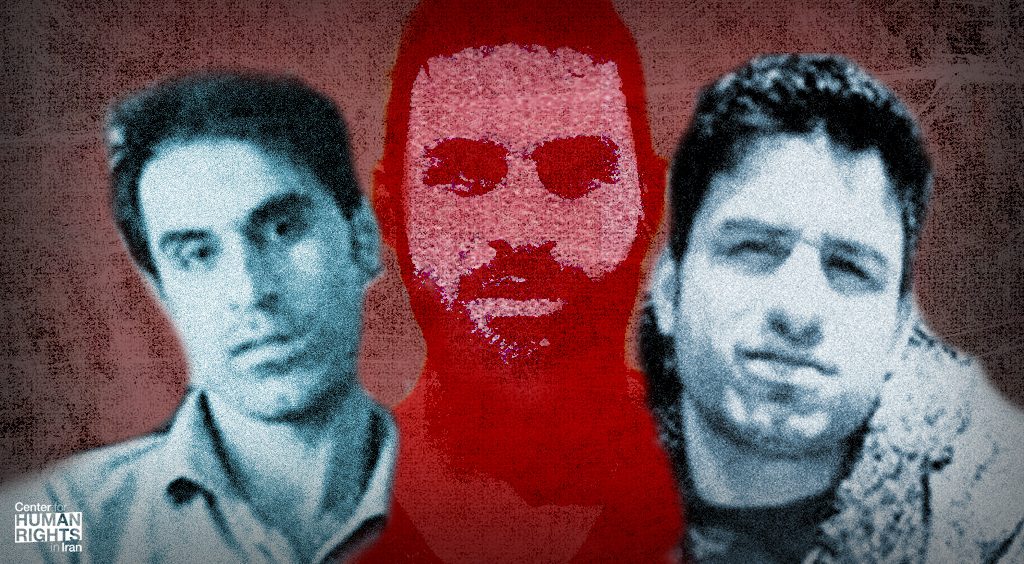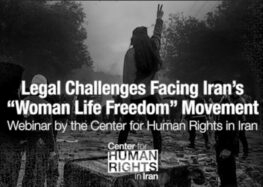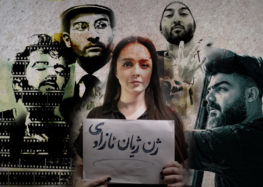Supreme Court Refusal to Review 25-year Sentence for Afkari Brother is Travesty of Justice

Investigation Marked by Torture, Witness Tampering and Contradictions
August 26, 2021—The refusal by Iran’s Supreme Court to allow a judicial review of the 25-year prison sentence for Vahid Afkari, the brother of wrestling champion Navid Afkari who was unlawfully executed last year, despite evidence of torture, forced false confessions, witness tampering and falsification of evidence, should be reversed, the Center for Human Rights in Iran (CHRI) said today.
Vahid, who along with a third Afkari brother, Habib, has been held under inhumane conditions in solitary confinement in Adelabad Prison in Shiraz, Fars Province, for almost a year, was prosecuted in connection with Navid’s alleged murder of a local official and participation in anti-state protests in the summer of 2018. Navid’s prosecution was marked by denial of due process and fair trial rights.
“The inconsistencies and gaps in the Afkari case are huge and should have immediately prompted a judicial review of the sentence,” said Hadi Ghaemi, CHRI executive director.
“If the Iranian judiciary is trying to signal that they will convict anyone who participated in peaceful protests on the most outrageously false and unsubstantiated charges, then this is the case that will prove that,” Ghaemi said.
According to Saeid Dehghan, the lawyer representing the Afkari family, the ruling against Vahid Afkari alone had “24 contradictions and 3 lies” which should have prompted the Supreme Court to accept the request to review Vahid’s 25-year sentence.
Based on the narrative provided by the authorities and accepted, unquestioned, by the courts, Navid committed murder by striking the victim and Vahid was an accomplice to the murder because he was the driver of the getaway motorcycle. In court, Navid and Vahid consistently rejected all the accusations.
Among the many aspects of the prosecution of the Afkari brothers that should have prompted a judicial review, which are discussed in detail in this CHRI article, are:
- “Confessions” were extracted under torture.
- The forced “confessions” did not even adhere to the known facts of the case.
- Statements by witnesses for the defense were not considered in court.
- Alleged “witnesses” for the state were unable to identify the defendants and were not credible.
- Conflicting and questionable statements to investigators by state witnesses were ignored.
- Key witnesses for the defense were not called.
- The alleged location of the defendants during the crime was not corroborated by a technical review of the victim’s phone at the time of the crime.
- The state pressured witnesses to make false statements against the defendants.
- Security camera footage near the murder scene was excluded from the proceedings, while supposedly incriminating footage was shot over a mile from the crime scene.
- Afkari family members have been pressured by the authorities to remain silent.
- Iran’s state media paved the way for their prosecution, broadcasting unsubstantiated claims.
- Vahid was sentenced partly on the basis of the “judge’s knowledge” but people with knowledge of the crime did not make their statements in front of the judge, as required by the law.
The three Afkari brothers collectively were charged with committing more than 20 crimes, including “initiating intentional murder,” “waging war against the state by forming an opposition group,” “participation in illegal gatherings,” “assembly and collusion against national security,” “insulting the Supreme Leader,” and “propaganda against the state.”
Habib Afkari, meanwhile, has been sentenced to 54 years in prison. A petition for a review has not yet been filed.
“The falsified and unsubstantiated charges in the Afkari case are startling in their recklessness, and they reflect a growing sense of impunity on the part of the authorities in Iran,” said Ghaemi.
“It is imperative that the international community speak out against the Iranian authorities’ use of the judiciary to silence people who have participated in protests—either by prison or execution,” Ghaemi added, “or it will give a green light for the continuation of such activities.”






